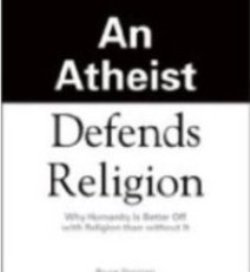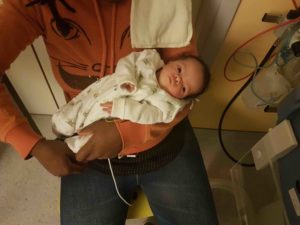It's that time of year when the world is in love (with Christmas shopping. We're apparently skipping Thanksgiving this year.) Naturally, the thieves are trying to get an early start on grabbing those stocking stuffers, and seem to be looking to stuff their stockings with gifts purchased by defrauding our BB&T credit card. Fortunately, our bank has excellent fraud protection. Customer service notified my wife and I less than 24 hours after the abnormal transactions began to appear on our account. By mutual agreement BB&T canceled that compromised credit card number so no further charges would get approved, but not before our identity thieves managed to order Walmart gift cards and cell phones through an online account. The customer service representative assured us that we wouldn't be held responsible for the fraudulent charges, but nevertheless I was perturbed by the idea someone successfully used my name to steal from a business that heavily discounts merchandise to benefit the customers. Not to mention, credit card holders are forced to pay higher interest rates because the credit card companies can't afford to eat the losses, either. These thieves were using my identity to steal from you. We all pay higher prices at Walmart to compensate for the losses to shoplifting. We all pay higher interest rates on our credit cards--not only to mitigate losses due to bankruptcies and failure to pay by the cardholder, but also because of fraud. As a result, I'm not a big fan of liars or thieves. But in our case, the story has a happy ending. Walmart emailed to … [Read more...]
OBE questions for Dr. Susan Blackmore
Dear Dr. Blackmore, With great interest, I read the personal OBE account from November 1970 on your website. I must admit I was a bit surprised, given what I previously knew about your work and your book, The Meme Machine. I had no idea that you received your PhD in parapsychology. Given the nature of the questions I'm about to ask, I have some concern about the sentence in your biography stating that you no longer research paranormal phenomena. However I must ask these questions of someone, and your particular area of expertise would seem to make you the ideal person to submit my query. Your 2016 lecture at the SANDS conference in Italy would have been the perfect forum to ask my questions but unfortunately, I wasn't invited. https://www.youtube.com/watch?v=MBDPji5p6zE I'm not going to try to convince you that your alleged OBE wasn't a drug-induced hallucination, because I've never had one myself and that seems to be the best explanation for the "experience" you described. Because I know you're very busy and have an assistant screening your emails, I'll get right to the point. My first question is this: given that you presented reasonable evidence that your OBE wasn't real, why did you call it an OBE? Why didn't you just call it a drug-induced hallucination, as it seems to have been? Have you assumed that because your "OBE" probably wasn't real, that every other alleged OBE must also be a hallucination? More importantly, what do you do with evidence that if true, would invalidate your assumption? My remaining questions are all related the specific … [Read more...]
An Atheist Defends Religion
Author Bruce Sheiman approaches the debate between theists and atheists about whether God exists from a unique point of view. He is a professed atheist who defends the right of religious people to have their faith. He touts the psychological and physical health benefit one may derive from placing hope and faith in their Creator. Sheiman coined a term to differentiate himself as an atheist (one who doesn’t believe in God personally) to Richard Dawkins and his fan club as antitheists, meaning people with a militant atheistic agenda. Antitheists not only reject God for themselves but actively campaign to eradicate faith in others. It’s very helpful to understand the difference. In a section of his book titled "Scientific Materialism and Relativism" Sheiman writes, In the traditional evolutionary view, there is no difference between humans and animals, since both are driven by the same survival and gene replication imperatives. On the plus side, this may lead many people to respect all living creatures. On the negative side and in the extreme, this can lead to species relativism: the idea that humans are not the pinnacles of creation; we are no different from other creatures. (p41) A little later Sheiman clarifies that point, adding, …[b]ut the second implication is very disturbing. If humans are animals and our lives are not divinely inspired, the edifice of Judeo-Christian morality about the sanctity of human life is discredited. God is dead and we should recognize ourselves as Darwinian primates who enjoy no special status compared to other animals. … [Read more...]
A blind rock maker?
In his 1802 book titled Natural Theology, or Evidences of the Existence and Attributes of the Deity Collected from the Appearance of Nature, Anglican Priest and philosopher William Paley made the classic teleological "argument from design" in his famous Watchmaker analogy, which says: In crossing a heath, suppose I pitched my foot against a stone, and asked how that stone came to be there; I might possibly answer that, for anything I knew to the contrary, it has lain there forever. Nor would it perhaps be very easy to show the absurdity of this answer. But suppose I have found a watch upon the ground, and it should be inquired how the watch happened to be in that place; I should hardly think of the answer, which I had before given, that for anything I knew, the watch might have always been there.... The watch must have had a maker: that there must have existed, at some time, and that some place or other, and artificer or artificers, who formed it for the purpose which we find it actually to answer; who comprehended its construction and designed its use.... Every indication of contrivance, every manifestation of design, which existed in the watch, exists in the works of nature; with the difference, on the side of nature, of being greater or more, and that in a degree which exceeds all computation. Granted, rebuttals have been attempted in response to Paley’s argument for Intelligent Design, but the question is: can these counterarguments actually challenge a modernized version of Paley's Watchmaker with any real success? It seems to me that all of these counterarguments … [Read more...]
What is a miracle?
In my previous article about the healing power of the mind, I confessed that I have been praying for my mother to be healed from an incurable disease that has dramatically affected her speech. In that article, I revealed that I had received a most unexpected (but welcome) email from spiritual healer Carol Everett, inspiring me to ask for her help. If you happened to read that article, you might be wondering how my mother is doing. Well, in my honest opinion, she's doing much better. In fact, I'd have to say that my mother's condition has improved significantly. However, if you asked me if my mother has been completely healed, I'd have to say no...at least, not yet. Helped, or improved, absolutely. But completely healed? No. Not yet. What does this mean? How should I interpret what I would describe as good, but not an instantaneous cure? Should I be discouraged? I don't think so. Was I asking too much of God, to heal an elderly woman? Absolutely not. The Creator of this universe from absolutely nothing, the Animator of lifeless matter into a living organism, can literally do anything He wants. This "naturally" includes healing the sick and even resurrecting the dead. However, the phrasing of that sentence was deliberate and crucial to get right...it's what God wants, not what I want, that matters. God is our Creator, not our personal valet. It would be arrogant and foolish to make demands of God. Admittedly, some atheists have created websites asking clever questions like "why won't God heal amputees?" to mock the idea that literally, there is nothing … [Read more...]




